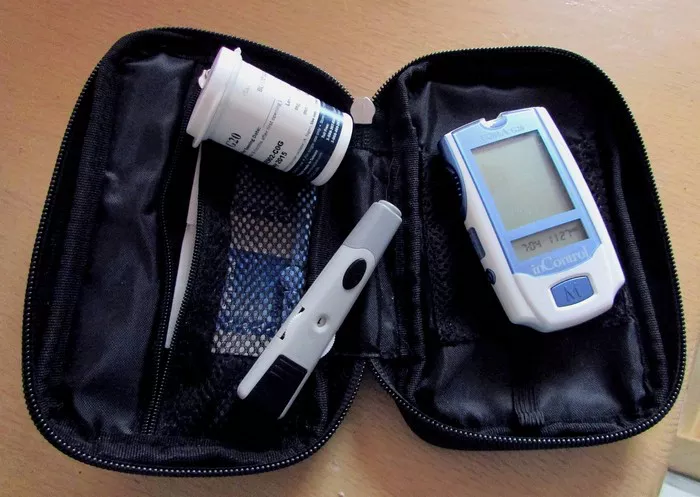Diabetes is a chronic condition characterized by elevated blood sugar levels resulting from either the body’s inability to produce insulin or its ineffective use of insulin. While diabetes is commonly associated with weight gain and obesity, there is a specific type of diabetes that often leads to weight loss – Type 1 diabetes. In this article, we will delve into the mechanisms behind Type 1 diabetes, its impact on weight, and strategies for managing both the condition and associated weight loss.
Understanding Type 1 Diabetes
Type 1 diabetes, formerly known as juvenile diabetes or insulin-dependent diabetes, is an autoimmune disorder in which the body’s immune system mistakenly attacks the insulin-producing beta cells in the pancreas. As a result, the pancreas produces little to no insulin, leading to uncontrolled blood sugar levels.
Unlike Type 2 diabetes, which is often linked to lifestyle factors such as obesity and physical inactivity, Type 1 diabetes is not preventable and typically manifests earlier in life, often during childhood or adolescence. While the exact cause of Type 1 diabetes remains unknown, genetic predisposition and environmental triggers are believed to play significant roles in its development.
Weight Loss in Type 1 Diabetes
Weight loss is a common symptom of Type 1 diabetes and can occur for several reasons:
Insulin Deficiency: Without adequate insulin, the body is unable to effectively utilize glucose for energy, leading to a state of cellular starvation. To compensate for this energy deficit, the body begins to break down stored fat and muscle tissue, resulting in weight loss.
Increased Urination: Excess glucose in the bloodstream leads to increased urination, a condition known as polyuria. This frequent urination causes the body to lose fluids and electrolytes, contributing to weight loss through dehydration.
Loss of Calories: In an attempt to lower blood sugar levels, the body excretes excess glucose through urine, leading to calorie loss. This calorie loss can further exacerbate weight loss, especially if adequate caloric intake is not maintained through diet.
Metabolic Changes: The metabolic dysregulation associated with Type 1 diabetes can alter the body’s energy metabolism, leading to increased energy expenditure and subsequent weight loss.
Managing Weight Loss in Type 1 Diabetes
While weight loss is a common symptom of Type 1 diabetes, it is essential to manage the condition effectively to prevent complications and maintain overall health. Here are some strategies for managing weight loss in Type 1 diabetes:
Insulin Therapy: The cornerstone of Type 1 diabetes management is insulin therapy. Insulin replacement therapy aims to mimic the body’s natural insulin production and regulate blood sugar levels effectively. By ensuring adequate insulin levels, the body can utilize glucose for energy, preventing excessive breakdown of fats and muscle tissue.
Balanced Diet: A balanced diet is crucial for managing both blood sugar levels and weight in Type 1 diabetes. Focus on consuming a variety of nutrient-rich foods, including fruits, vegetables, whole grains, lean proteins, and healthy fats. Monitoring carbohydrate intake and spacing meals evenly throughout the day can help stabilize blood sugar levels and prevent fluctuations that contribute to weight loss.
Regular Monitoring: Regular monitoring of blood sugar levels is essential for managing Type 1 diabetes and preventing complications. Frequent blood sugar checks can help identify fluctuations and adjust insulin doses accordingly to maintain optimal control. Additionally, monitoring body weight and addressing any unexplained changes can help detect and manage weight loss effectively.
Physical Activity: Incorporating regular physical activity into your routine can help improve insulin sensitivity, regulate blood sugar levels, and manage weight in Type 1 diabetes. Aim for a combination of aerobic exercise, such as walking or cycling, and strength training to promote overall health and well-being.
Support Network: Living with Type 1 diabetes can be challenging, and having a strong support network can make a significant difference in managing the condition and associated weight loss. Seek support from healthcare professionals, diabetes educators, and peers who understand the challenges you face and can provide guidance, encouragement, and resources.
Conclusion
Type 1 diabetes is a chronic autoimmune condition characterized by insulin deficiency and uncontrolled blood sugar levels. While weight loss is a common symptom of Type 1 diabetes, it is essential to manage the condition effectively to prevent complications and maintain overall health. By implementing strategies such as insulin therapy, balanced diet, regular monitoring, physical activity, and a strong support network, individuals with Type 1 diabetes can effectively manage weight loss and lead fulfilling lives despite the challenges posed by the condition.

























